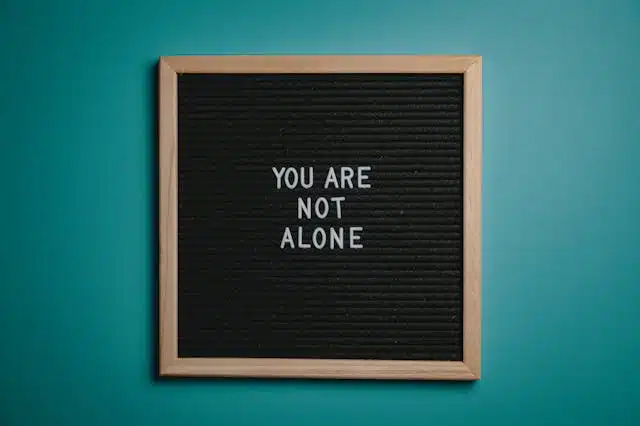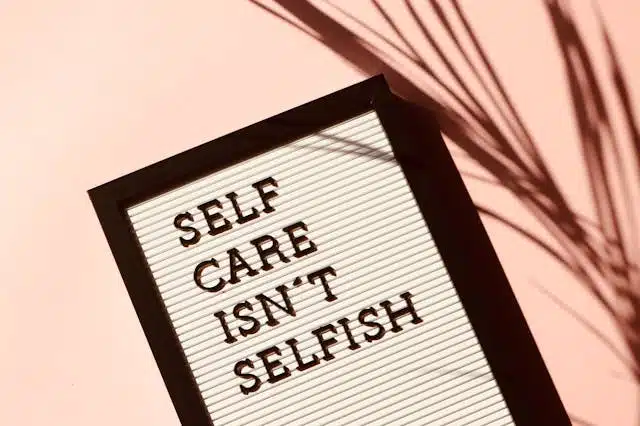What is Mental Health Advocacy & How to Get Involved?
Mental health advocacy is one of the most powerful tools we have to build a society where emotional well-being is supported, not stigmatized.
It doesn’t require a degree in psychology or a decade of professional experience to make an impact.
In fact, some of the most meaningful advocacy starts with everyday people choosing to speak up, listen, and show compassion.
As rates of anxiety, depression, and psychological distress continue to rise, the need for grassroots involvement has never been more urgent.
Mental health advocates play a critical role in bridging the gap between mental health professionals and community needs, helping amplify voices that might otherwise go unheard and normalize conversations that many still find difficult to start.
From pushing for better mental health policies to simply checking in on a friend, advocacy can take many forms, and every one of them matters.
Becoming a mental health advocate means more than caring; it means acting in ways that create lasting change.
Whether you’re drawn to public education, peer support, or policy reform, there are countless entry points that align with your strengths and interests.
You don’t need to know everything; you just need to start somewhere.
Mental health advocacy is about showing up for others in a way that promotes dignity, access, and understanding.
By taking your first step today, you’re joining a growing movement that proves care and connection can change lives!
What is Mental Health Advocacy?

At its core, advocacy means standing up for those whose voices may be silenced by fear, shame, or systemic barriers. It involves listening without judgment, validating someone’s experience, and offering tools or resources that empower them to seek help. You don’t need a title to be an advocate, just a commitment to showing up with empathy and respect.
Mental health advocacy is the active effort to promote awareness, reduce stigma, and improve access to care for individuals experiencing mental health challenges.
While it can involve large-scale actions, such as speaking at events or lobbying for policy reform, it often begins with small, personal acts of support.
Creating emotionally safe spaces is also a vital part of mental health advocacy.
Whether you’re at work, in school, or chatting with friends, developing environments where people feel comfortable sharing their mental health experiences without fear of ridicule or dismissal is essential.
These moments may seem small, but they often lay the foundation for someone to begin their own healing process.
Mental health advocacy is about meeting people where they are and standing beside them, not above them, as they navigate their journey.
How to Get Involved in Mental Health Advocacy

Getting involved in mental health advocacy doesn’t require a perfect plan; it just requires a willingness to take meaningful steps toward change.
Whether you’re passionate about improving access to care, reducing stigma, or supporting those in crisis, there are countless ways to contribute that align with your time, skills, and personal story.
The mental health field needs diverse voices: parents, students, professionals, and people with lived experience all have something valuable to offer.
Advocacy efforts can range from one-on-one conversations to broader community outreach or policy engagement.
What matters most is your commitment to supporting mental well-being at both the personal and societal level.
In the sections below, you’ll find practical, beginner-friendly ways to start your mental health advocacy journey, rooted in compassion, education, and action.
Consider Formal Training to Expand Your Role
If you’re passionate about long-term mental health advocacy, formal training can amplify your impact.
Many advocates begin by simply supporting others and later pursue CACREP-accredited counseling programs to deepen their knowledge and credentials.
Affordable and flexible options are available online, making it easier to align your education with your advocacy goals and turn your passion into a career.
You can start by shortlisting some of the cheapest CACREP-accredited programs online and then choose a path that aligns with your goals.
Start Conversations That Break Stigma
One of the simplest ways to support mental health advocacy is by normalizing conversations about stress, anxiety, and emotional well-being.
You don’t need to have the perfect words; just listen without judgment and speak openly.
When these topics become part of everyday dialogue, more people feel safe seeking the help they need.
Volunteer with Local Wellness and Support Groups
Volunteering at local nonprofits, crisis lines, or mental health organizations gives you hands-on experience while helping others.
Most offer basic training, so no prior expertise is required.
Just empathy, consistency, and a willingness to be present.
It’s a practical and powerful entry point into community-based mental health advocacy.
Learn from People with Lived Experience
Effective mental health advocates are also great listeners.
Learning from people who’ve faced mental health challenges firsthand, through blogs, talks, or conversations, builds your understanding and compassion.
These real-life stories help shape more inclusive, respectful, and personalized advocacy efforts.
Promote Helpful Resources in Your Community
Helping people access mental health resources is a core part of advocacy.
Whether it’s sharing a local crisis line or posting flyers for free support groups, timely information can guide someone toward healing and recovery.
Use bulletin boards, social media, and conversations to guide others in the right direction.
Sometimes a single recommendation can change everything!
Use Social Media to Spread Awareness
Social media is a valuable platform for mental health advocacy when used intentionally.
Share educational content, mental wellness tips, or supportive messages from trusted organizations.
Even small posts can raise awareness, break stigma, and remind others they’re not alone in their struggles.
Learn About Mental Health Policy and Advocacy Work
To advocate on a broader scale, it’s helpful to understand mental health policy.
Local and national legislation influences access to care and community support.
Follow advocacy groups, attend public meetings, or explore recent legislation to learn how to advocate for systemic change.
A basic knowledge of policy makes your efforts more impactful.
Practice Compassionate Listening and Everyday Support
Everyday mental health advocacy often begins with how we listen.
You don’t need to fix someone’s problem, just offer your full attention and let them speak at their own pace.
Compassionate listening builds trust and connection, and it’s a skill that can make a lasting difference in anyone’s life.
Take Care of Yourself While Supporting Others
Self-care for healthcare workers is a crucial part of long-term success, and that includes mental health advocates.
Sustainable mental health advocacy requires self-care.
Supporting others can be emotionally demanding, so it’s crucial to set boundaries, rest, and recharge regularly.
Taking care of your own well-being ensures you can show up consistently, effectively, and with genuine compassion.
Final Thoughts: Becoming a Mental Health Advocate
Mental health advocacy begins with the belief that everyone deserves to feel heard, supported, and understood, regardless of credentials or experience.
As mental health challenges continue to rise, the need for compassionate, community-based support has never been greater.
While licensed professionals play a vital role, everyday advocates help fill critical gaps by developing connections, reducing stigma, and guiding others toward appropriate care and support.
This grassroots support can be just as powerful as formal interventions.
Advocacy takes many forms: starting honest conversations, promoting helpful resources, listening without judgment, or even pursuing training to take your efforts further.
What matters is showing up consistently with empathy and a willingness to learn. You don’t have to be perfect, you just have to be present.
Taking the first step can feel small, but it often sparks a ripple effect.
Whether you influence one person or an entire community, your voice and actions matter.
Mental health advocacy is not about having all the answers; it’s about creating space for healing, hope, and human connection.
By choosing to get involved, you’re already part of something meaningful.
And that’s the true heart of mental health advocacy!
This website does not provide medical advice. This website site does contain affiliate links, and purchases may earn a commission.
Read my Medical Disclaimer, Review Disclaimer, and Publishing Policies for more details. Use of this site indicates acceptance of these terms.



